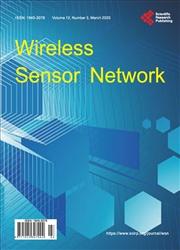A Free Market Economy Model for Resource Management in Wireless Sensor Networks
引用次数: 5
Abstract
This paper presents a free market economy model that can be used to facilitate fully distributed autonomous control of resources in massive heterogeneous wireless sensor networks (WSNs). In the future, it is expected that WSNs will exist as part of the global Internet of Things (IoT), and different WSNs can work together in a massive network of heterogeneous WSNs in order to solve common problems. Control of valuable processing, sensing and communication resources, determining which nodes will remain awake during specific time periods in order to provide sensing services, and determining which nodes will forward other nodes’ packets are difficult problems that must be dealt with. It is proposed that just as the free market economy model enables the global human society to function reasonably well when individuals simply attempt to trade money and services in order to maximize their individual profits, and a similar model and mechanism should enable a massive network of heterogeneous WSNs to function well in a fully distributed autonomous manner. The main contributions of this paper are the introduction of the free market economy model for use with WSNs, the formal definition of a maximum profit price problem for multihop packet relaying, and the proposal of a distributed genetic algorithm for the solution of the maximum profit price problem. Simulation results show that the proposed distributed solution produces results that are 70% - 80% similar to a pareto optimal solution for this problem.无线传感器网络资源管理的自由市场经济模型
本文提出了一种自由市场经济模型,可用于实现大规模异构无线传感器网络(WSNs)中资源的完全分布式自治控制。在未来,预计wsn将作为全球物联网(IoT)的一部分存在,不同的wsn可以在异构wsn的庞大网络中协同工作,以解决共同的问题。控制有价值的处理、感知和通信资源,确定哪些节点在特定时间段保持清醒以提供感知服务,以及确定哪些节点转发其他节点的数据包是必须解决的难题。本文提出,正如自由市场经济模式使全球人类社会在个人仅仅试图交易货币和服务以最大化其个人利润时能够合理地运行一样,类似的模型和机制应该使异构wsn的大规模网络能够以完全分布式的自主方式良好运行。本文的主要贡献是引入了用于无线传感器网络的自由市场经济模型,正式定义了多跳分组中继的最大利润价格问题,并提出了求解最大利润价格问题的分布式遗传算法。仿真结果表明,所提出的分布式解决方案与该问题的帕累托最优解决方案的相似度为70% ~ 80%。
本文章由计算机程序翻译,如有差异,请以英文原文为准。
求助全文
约1分钟内获得全文
求助全文

 求助内容:
求助内容: 应助结果提醒方式:
应助结果提醒方式:


